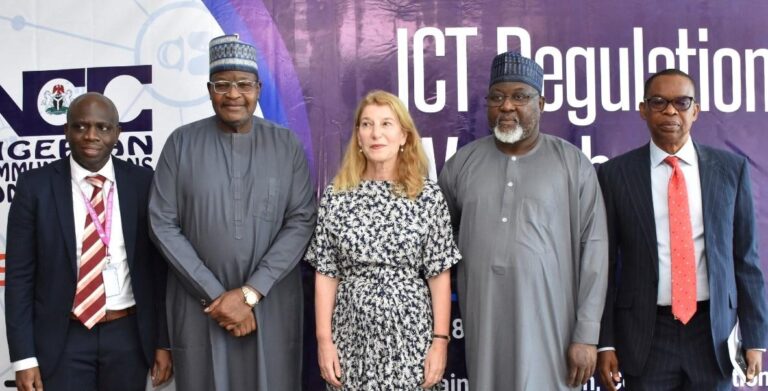The Executive Vice Chairman of the Nigerian Communications Commission (NCC), Prof. Umar Danbatta, has commended the partnership between the Swedish Government and the Commission, saying it has strengthened the NCC’s regulatory activities.
Prof. Danbatta gave the commendation while speaking at a workshop jointly organised by NCC and its Swedish partners within the framework of the Swedish Programme for Information and Communications Technology (ICT) in Developing and Emerging Regions (SPIDER), Danbatta stressed the significant strides made by NCC in the field of ICT.
“This workshop signposts the vital role the Nigerian Communications Commission, as a regulator, has been playing in the West African sub-region. It also highlights the unending objective of keeping up with the times and ever-evolving dynamics of the telecommunications sector,” Danbatta stated.
The NCC Chief Executive reiterated the enduring commitment of the Swedish Government and SPIDER to the cause of ICT development in emerging regions and acknowledged their roles in improving access to healthcare, education, income generation, and employment opportunities in West Africa, thereby contributing to poverty reduction.
In her speech, the Swedish Ambassador to Nigeria, Ghana, Cameroun, and Economic Community of West African States (ECOWAS), Mrs. Annika Hahn, highlighted the significance of ICT regulation and capacity building as key drivers for economic development and social progress.
The ambassador also commended the NCC for hosting the event and fostering collaboration between the two nations. She acknowledged the pivotal role ICT has played in Sweden’s economic growth being the birthplace of Ericsson, one of the world’s oldest and largest ICT companies, with a rich history in the sector.
Speaking further, the ambassador stressed the global technological revolution and its potential to catalyse industrial and economic development. She stressed the need for modern and adaptable regulation to navigate this rapidly evolving landscape.
Hahn also stated that “to cope with this new and swiftly-developing environment, we need to regulate in a modern and adaptable way. Therefore, human capacity building in ICT regulation is crucial for all of us.”




